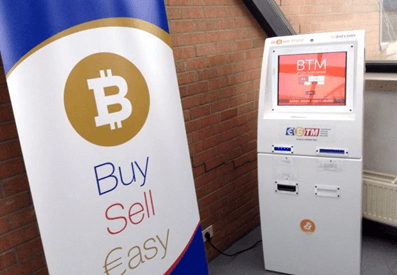This Royal Decree is a first and important step towards regulating cryptocurrencies and related activities in Belgium, which has gained popularity (for instance, Elon Musk, who purchases large quantities of ‘Dogecoin’ regularly and writes about it on Twitter, which eventually affects exchange rates). With this Royal Decree, the Belgian legislature tried to lay a foundation of trust and legal certainty for different players in this sector by compelling providers of cryptocurrency and related services to be registered with (and thus supervised by) the Financials Services and Markets Authority (FSMA).
Scope of application
The Royal Decree applies as from 1 May 2022 to providers of services relating to the exchange between virtual currency (e.g., Bitcoin | BTC) and traditional currency (e.g., Euro | EUR, which is also called fiat money) as well as to custodian wallet providers that are established on Belgian territory. Machines that exchange cryptocurrency for fiat money (and vice versa), which there are 40 to 50 of them that are operating actively in Belgium (mainly in the Brussels Capital Region), therefore fall under the scope of the new rules as well.

The types of service providers that are based outside the EEA (European Economic Area) are prohibited from offering these types of services on Belgian territory. This prohibition reduces the circumvention of the rules, at least pertaining to the players who are active outside the EEA. In that context, let us refer you to the draft proposal of the European MiCA Regulation (Markets in Crypto-assets), which we will feature in one of our coming newsletters, so you can read more about it.
Quid?
As indicated above, the service providers must register themselves with the FSMA. To become and remain registered, the service providers must fulfill several conditions, which the FSMA will monitor strictly. The FSMA highlights the main conditions in its press release of 23 February 2022:
- The appropriate expertise and professional integrity of the people who are effectively running the service provider’s business (e.g., experience);
- The suitability of certain shareholders of the service providers, given the need for sound and prudent policies;
- The service provider’s organization and its compliance with rules on anti-money laundering and financing of terrorism (e.g., KYC (know your client) or client identification).
Terms such as “suitability” and “appropriate expertise” obviously have a wide margin for interpretation, but according to the decisions on various applications for registration, the FSMA will undoubtedly filter out several criteria after 1 May 2022 that can serve as a guide for future registrations. Our understanding is that the FSMA will proceed on a case-by-case basis, taking into account the specific circumstances and characteristics of the service provider.
Service providers that are active in this sector without the required registration can be fined by the FSMA and be ordered to cease operations immediately. Moreover, the FSMA can also impose administrative fines, and the unregistered service provider could also risk being sanctioned under criminal law.
In the next newsletter, we will go deeper into discussing the criteria that the Royal Decree uses to assess whether a player is a service provider under the scope of application and what are the conditions for applying for registration with the FSMA. In that regard, we can already refer you to the useful Q&As about VASP (Virtual Asset Service Provider), which can be found on the FSMA’s website. Although the impact on the average entrepreneur will be quite limited today, this Royal Decree is already an important step towards trust in virtual currencies (and in trading them) without their being recognized as legitimate means of payment.
If you have any questions about the effects of the Royal Decree on your business activities or if you have other questions about crypto-assets, we’re here to listen and to help you.
[1] I.e., a digital or physical custodian of so-called private keys (comparable to passwords) that secures access to crypto-assets and therefore prevents them from being stolen.






